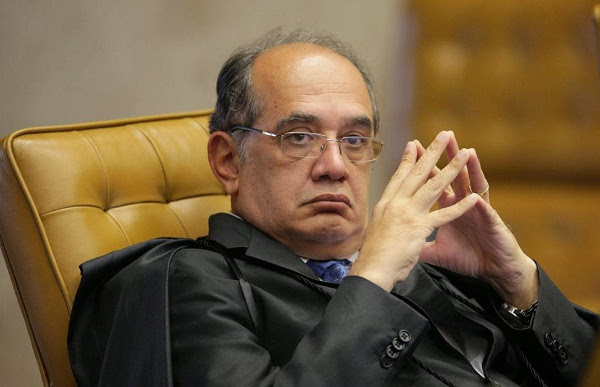Lula’s Judicial Coup: Early Retirements Pave the Way for Totalitarian Control of Brazil’s Supreme Court
By Eduardo Silva, Senior Political Analyst- Hotspotnews
October 20, 2025 – Brasília
In a move that reeks of authoritarian desperation, President Luiz Inácio Lula da Silva’s inner circle is orchestrating a silent takeover of Brazil’s Supremo Tribunal Federal (STF), the very institution meant to safeguard our democracy from executive overreach. What began as Justice Luís Roberto Barroso’s abrupt early retirement on October 9—eight full years before his mandatory exit—has snowballed into a cascade of whispers and maneuvers that threaten to bury the rule of law under a mountain of partisan loyalty. If rumors hold, Justices Cármen Lúcia and Gilmar Mendes could soon follow suit, handing Lula the keys to appoint a supermajority of sycophants who will rubber-stamp his radical agenda. This isn’t judicial evolution; it’s a calculated coup d’état against the Brazilian people.
Let’s cut through the fog of official denials and leftist spin. Barroso’s departure wasn’t the noble bow-out of a weary jurist; it was a parting gift to his PT comrades, clearing the path for Lula’s fifth STF pick in just two years. Remember, this is the same Barroso who twisted constitutional arms to disqualify Jair Bolsonaro from the 2026 race, all while cozying up to globalist elites at Davos. Now, with his seat vacant, expect another Lula crony—perhaps a Dino 2.0 or Zanin clone—to slide in, ensuring the court’s leftward lurch accelerates unchecked.
The real powder keg, however, lies with Cármen Lúcia and Gilmar Mendes. Sources close to the STF (who risk their necks speaking out in this climate of intimidation) report that Cármen, whose mandatory retirement looms in 2029, has been floating the idea of accelerating her exit as early as 2026. Why? To make room for a handpicked ally, possibly Senate President Rodrigo Pacheco, who could tip the scales even further toward Brasília’s power brokers. And Gilmar? The unpredictable maverick whose term runs until 2030 has dodged the speculation so far, but his recent maneuvers—suspending virtual plenaries on divisive issues like abortion just in time to avoid casting a decisive vote—smack of strategic positioning. If Gilmar jumps ship early, as some insiders fear, Lula would claim a sixth appointment, forging an ironclad 8-3 progressive bloc. That’s not balance; that’s domination.
Conservatives have long warned of this “aparelhamento” (packing) of the judiciary, a tactic straight out of the socialist playbook that eroded Venezuela’s institutions under Chávez. Since reclaiming the Planalto in 2023, Lula has already installed ideologues like Flávio Dino and Cristiano Zanin—men whose resumes read like PT loyalty oaths rather than impartial legal tomes. These appointees have greenlit everything from Lava Jato’s dismantling to the persecution of Bolsonaro supporters under the guise of “democracy defense.” An early Gilmar exit would supercharge this rot, sidelining any remaining moderates and unleashing a torrent of rulings that crush free speech, empower Big Tech censorship, and shield Lula’s corruption scandals from scrutiny.
The power struggle is already brewing in the shadows of the STF’s marble halls. Opposition lawmakers, led by firebrands in the Chamber of Deputies, are dusting off bills to raise the minimum age for STF justices to 60—a direct counterpunch against the youth pipeline of leftist activists Lula favors. But will it pass? In a Congress fractured by PT horse-trading, the odds are grim. Meanwhile, Bolsonaro’s base—millions of patriots who turned out in droves for January 8 inquiries only to see them twisted into witch hunts—fumes on the streets and social media. If Mendes retires prematurely, expect protests that dwarf 2013’s upheavals, with leaked audios and Senate showdowns exposing the rot for all to see.
This isn’t hyperbole; it’s history rhyming with catastrophe. Brazil’s founders envisioned the STF as a bulwark against tyranny, not a lapdog for fleeting administrations. Yet under Lula, it’s morphing into a parallel government, one that dictates elections, silences dissent, and erodes the separation of powers that keeps freedom alive. Conservatives must rise now: Demand transparency from the STF, rally behind reform legislation, and hold every complicit justice accountable at the ballot box in 2026.
The hour is late, but not too late. Brazil’s soul hangs in the balance. Will we allow a handful of robes to auction our republic to the highest bidder in the Palácio do Planalto? Or will we fight—for God, family, and country—to reclaim the justice we deserve? The choice is ours, but the clock is ticking.


